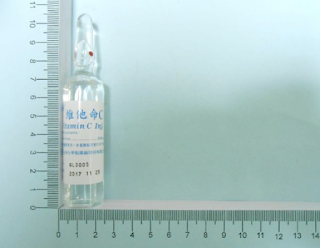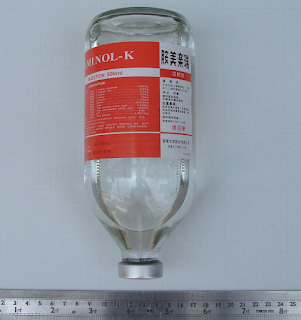預防細菌病毒入侵,提升免疫力最好就是讓自己的抵抗力提升,如果每天補充的三餐飲食無法讓可支持的體內元素增加,靜脈注射點滴是可以考慮的一種方式。2020.1.26 國際分子矯正醫學會(http://orthomolecular.org/)發表維生素C預防冠狀病毒建議應該多補充維生素C,過去醫師已證明維生素C擁有強大的抗病毒作用,為了要預防病毒攻擊人體,應該要提高人體抗氧化能力與提升免疫力,而對於流感也有醫師提出見解:
I have not seen any flu yet that was not cured or markedly ameliorated by massive doses of vitamin C.(Robert F. Cathcart, MD)
主要就是多補充維生素C(維他命C又稱做維生素C)也能緩解流感。
 |
| 靜脈注射點滴 維他命C注射增強免疫力 |
 |
| 維生素C保護人體預防病毒 |
國際分子矯正醫學會提醒大家應該補充基礎營養素,來提升免疫力及預防未來病毒感染,當然也建議成人、兒童可以參照體重比例來補充下列營養素:
- 維他命C Vitamin C:3,000 mg/天
- 維他命D3 Vitamin D3:2,000(IU International Units)/天
- 鎂 Magnesium:400mg/天
- 鋅 Zinc:20mg/天
- 硒 Selenium:100mcg/天
 |
| 維他命C注射液 台裕 |
 |
| 胺美樂瑞注射液 這些都是需要醫師/藥師處方許可注射 |
維他命C、維他命D、鎂、鋅、硒 是都可以增強免疫力地抗病毒。
飲食上建議每日平均攝取:
- 富含維他命C的水果(柑橘、芭樂、哈密瓜、奇異果等)
- 維他命D3(鹽漬鯖魚、鮭魚、蛋等)
- 鎂(雜糧、堅果等)
- 鋅(火雞肉、豬腳、牡蠣、白芝麻等)
- 硒(小麥胚芽、大蒜、蘆筍、番茄、蛋等)
總之,預防比治療疾病更重要!提升免疫力 你也可以一起這樣做。
參考資料:
Vitamin C:
Gonzalez MJ, Berdiel MJ, Duconge J (2018) High dose vitamin C and influenza: A case report. J Orthomol Med. June, 2018, 33(3). https://isom.ca/article/high-dose-vitamin-c-influenza-case-report.
Hemilä H (2017) Vitamin C and infections. Nutrients. 9(4). pii:E339. https://www.ncbi.nlm.nih.gov/pubmed/28353648.
Gorton HC, Jarvis K (1999) The effectiveness of vitamin C in preventing and relieving the symptoms of virus-induced respiratory infections. J Manip Physiol Ther, 22:8, 530-533. https://www.ncbi.nlm.nih.gov/pubmed/10543583
OMNS (2007) Vitamin C: a highly effective treatment for colds. http://orthomolecular.org/resources/omns/v03n05.shtml
OMNS (2009) Vitamin C as an antiviral http://orthomolecular.org/resources/omns/v05n09.shtml.
Yejin Kim, Hyemin Kim, Seyeon Bae et al. (2013) Vitamin C is an essential factor on the anti-viral immune responses through the production of interferon-α/β at the initial stage of influenza A virus (H3N2) infection. Immune Netw. 13:70-74. https://www.ncbi.nlm.nih.gov/pubmed/23700397
Vitamin C Protects Against Coronavirus OMNS January 26, 2020 http://bit.ly/37wlU4U
Vitamin D:
Ginde AA, Mansbach JM, Camargo CA Jr. (2009) Association between serum 25-hydroxyvitamin D level and upper respiratory tract infection in the Third National Health and Nutrition Examination Survey. Arch Intern Med. 169:384-390. https://www.ncbi.nlm.nih.gov/pubmed/19237723
Martineau AR, Jolliffe DA, Hooper RL et al. (2017) Vitamin D supplementation to prevent acute respiratory tract infections: systematic review and meta-analysis of individual participant data. BMJ. 356:i6583. https://www.ncbi.nlm.nih.gov/pubmed/28202713
von Essen MR, Kongsbak M, Schjerling P et al. (2010) Vitamin D controls T cell antigen receptor signaling and activation of human T cells. Nat Immunol. 11:344-349. https://www.ncbi.nlm.nih.gov/pubmed/20208539
Magnesium:
Dean C (2017) Magnesium. OMNS, http://www.orthomolecular.org/resources/omns/v13n22.shtml
Zinc:
Fraker PJ, King LE, Laakko T, Vollmer TL. (2000) The dynamic link between the integrity of the immune system and zinc status. J Nutr. 130:1399S-406S. https://www.ncbi.nlm.nih.gov/pubmed/10801951
Liu MJ, Bao S, Gálvez-Peralta M, et al. (2013) ZIP8 regulates host defense through zinc-mediated inhibition of NF-кB. Cell Rep. 3:386-400. https://www.ncbi.nlm.nih.gov/pubmed/23403290
Mocchegiani E, Muzzioli M. (2000) Therapeutic application of zinc in human immunodeficiency virus against opportunistic infections. J Nutr. 130:1424S-1431S. https://www.ncbi.nlm.nih.gov/pubmed/10801955
Shankar AH, Prasad AS. (1998) Zinc and immune function: the biological basis of altered resistance to infection. Am J Clin Nutr. 68:447S-463S. https://www.ncbi.nlm.nih.gov/pubmed/9701160
Selenium:
Beck MA, Levander OA, Handy J. (2003) Selenium deficiency and viral infection. J Nutr. 133:1463S-1467S. https://www.ncbi.nlm.nih.gov/pubmed/12730444
Cathcart RF. The method of determining proper doses of vitamin C for treatment of diseases by titrating to bowel tolerance. Australian Nurses J 1980, 9(4):9-13. http://www.doctoryourself.com/titration.html






0 意見